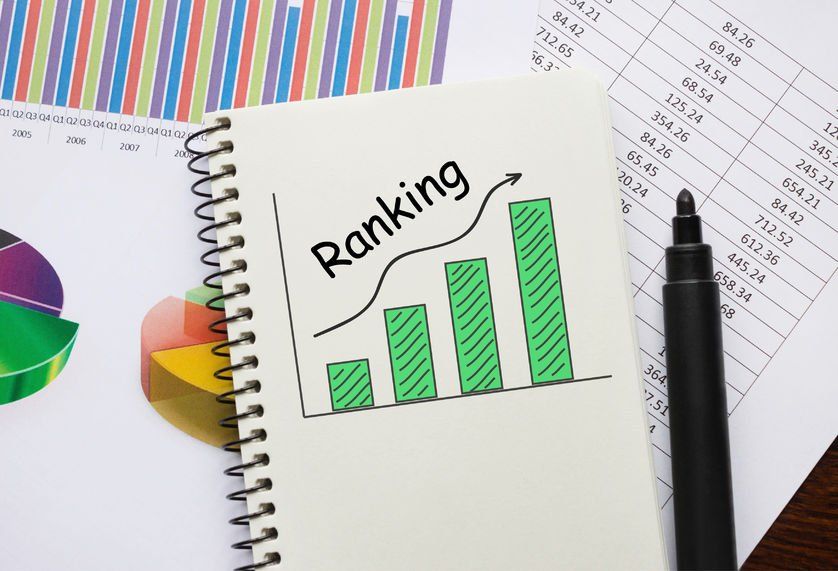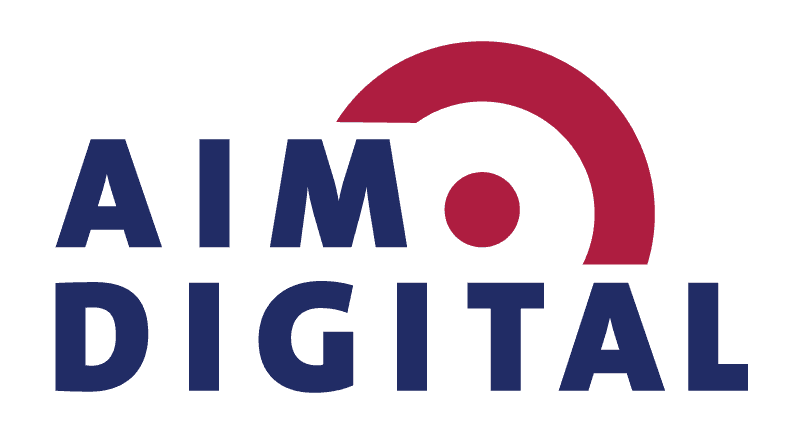Facebook's New Ad Tool: Lead Ads For Local Businesses
Advertising on social media has become fairly commonplace. Sites like Facebook, Twitter, LinkedIn, Instagram, and Pinterest offer multiple advertising options that allow business owners to boost their pages, drive traffic to their websites, and feature specified posts to increase their social media following. Social media advertising is easy and affordable.
Facebook’s latest tool offers a way for local businesses to generate leads. It’s called Lead Ads for Local Businesses, and it’s changing the way small businesses use social media to advertise.
What is Lead Ads for Local Businesses?
Traditional Facebook ads offer users the chance to click and be redirected to a business’s Facebook page or website. Lead Ads is a little different, because it allows customers to click the ad and then request additional information from the business in question. For example, they might request:
- A price estimate or quote
- A product demo
- A free menu item
- A newsletter
- General information
You might think of Lead Ads as being a bit like a portable landing page. You can use these ads to collect prequalified leads and get them into your sales funnel.
THE BENEFITS OF USING LEAD ADS
Internet statistics for 2016 show that more users access the internet using mobile devices than computers. However, reading information about a company on a mobile device can be challenging, even if they’re on the mobile version of Facebook.
Lead Ads offers users an easy way to request additional information about your company wherever they are. The ads are mobile-friendly and easy to use. When a user clicks a Lead Ad, they will see a form with pre-filled information from their Facebook profile. That means they don’t have to struggle to fill in the form using their phone because Facebook does it for them. By streamlining the process, Facebook has eliminated one of the biggest roadblocks to gathering leads online. It also reduces the likelihood of you getting inaccurate information due to the customer making a mistake.
IT’S QUICK AND EASY TO USE.
The ease of completing the contact form is a plus for users, but Lead Ads offers benefits for business owners, too:
- You can customize the form so it gathers only the information that is relevant to you. For example, you might want to gather just a name and email address, or include additional information such as a mobile number.
- You run a smaller risk of bouncing (or losing) customers due to a complicated lead form. As a rule, customer sign-ups decrease when additional fields are added to opt-in forms. Usually that means you can gather only an email address, but Facebook’s automatic forms make it easy to ask for additional information without worrying that users will refuse to complete the form.
- You have access to the same psychographics and targeting tools you can use for all Facebook advertising. That means you can target ads based on age, gender, marital status, and geographical location, as well as using things like hobbies and interests.
- Lead Ads offer a quick way for you to grow your email list, but that’s not their only use. You can also use them to gather applications, registrations, or pre-orders. Their flexibility means you can use them in a variety of ways.
- You can create Custom Audiences and Lookalike Audiences to hone in on the people who are most likely to be in the market for your product or service.
- In addition to targeting specific demographics, you can use the information you gather to remarket to existing customers as well as reaching out to prospects.
Lead Ads offers many of the same advantages of regular Facebook advertising. You can set a daily budget and monitor your ad’s performance using Facebook Insights.
WAYS TO USE FACEBOOK LEAD ADS
While the most obvious way to use Facebook Lead Ads may be to grow your email list, there are many other things you can do with this exciting new advertising option. For example, you could: 1.
- Get people to sign up for your newsletter or for information about your product or service.
- Send out deals and coupons for your local or online business.
- Announce new promotions and sales.
- Gather interest forms or applications for things like financial services, education, or other
professional services.
The versatility of Facebook Lead Ads means that you can adapt the form and targeting to almost any purpose you can imagine. The information you gather can then be used to nurture leads with follow-up emails and social media posts, retarget existing customers, or even to gather valuable demographic information about potential customers.
HOW TO USE FACEBOOK LEAD ADS
The basic requirements for using Facebook Lead Ads for your business are the same as using any kind of Facebook advertising. You must have an active Facebook page for your business, and you can set up the ad from your home page. Be prepared with information about whom you will target with the ad and how much you want to spend. You should also think about what information you need to get from potential customers so you can request it when you customize your information form.
One thing that sets Facebook Lead Ads apart from other social media advertising is that you will be required to include a link to your company’s privacy policy. Doing so offers customers the reassurance that the information they submit will go only to you. Facebook prohibits advertisers from selling lead information to other businesses, and you should make sure to read their terms and conditions before you get started.
All in all, Facebook Lead Ads provide a quick and easy way for you to gather customer leads and use the information you collect to grow your business. These ads benefit consumers and businesses equally by making the process of gathering leads easier from both ends. Consumers have the convenience of one-click sign-ups, and businesses can gather accurate information that they can then use in a number of ways.
Are you making the most of your social media pages? Sites like Facebook and Twitter are a wonderful way to interact with current customers, but if you handle them properly, they can also be a great source of new leads. A lot of local businesses don’t do a good job of using social media to generate leads because they’re not sure how to go about it. With that in mind, let’s talk about some of the ways you can use social media to get qualified leads for your company.
Strategy #1: Fill out your profiles completely
A lot of small business owners skip the step of completing a profile, but that’s a mistake. Take the time to fill in your company’s full name, address, and phone number, provide a brief description, and link back to your website. Choose a compelling profile picture and cover photo. The more complete your profile is, the more compelling it will be to potential customers.
Strategy #2: Link your social media posts to landing pages, not your home page
If you’re posting in an effort to get people to buy a particular product, make sure you link directly to it. Prospective leads shouldn’t have to guess what you want them to do. When you send them directly to a page – especially one that will require them to opt in to see the content – you greatly increase the chances that they will convert. Also, make sure that every page has your name and address, and an easy way to contact you.
Strategy #3: Sponsor a contest
This one is a pretty popular strategy that’s been around for a while, but it’s worth including because it is so effective. People who are already following you on social media are highly likely to be interested in anything you are giving away. You can maximize your exposure by offering one entry to people who like the post, and a second entry to those who share it. Your most loyal customers will always be willing to share, and the shared post will get your company in front of a whole new audience, many of whom will also be local.
Strategy #4: Use a Twitter card or pinned Facebook note to attract leads
One downside of using social media is that content turns over very quickly. That means that a call to action that you post can easily get lost in the shuffle – unless you pin it. Facebook allows you to write a note and pin it at the top of your page. Likewise, Twitter allows you to create a Twitter card with relevant information and pin it to the top of your profile. The benefit of pinning is that it leaves your content in a highly visible location for as long as you want, thus increasing visits to your website – and also visits to your business.
Strategy #5: Sponsor a Google Hangout with local customers
One of the trickiest things about getting people to buy from you is overcoming the objections that they hear inside their heads. If you can get an opportunity to talk to them directly, you can address those concerns easily. A Google Hangout is a nice way to accomplish that. Set up a time for the Google Hangout using your Google+ or Google My Business account. Your Hangout can be a round table discussion with potential customers or even a live Q & A with people online. The benefit of live online events like this is that you can interact directly with customers, and also post the Hangout for people who couldn’t make it to watch later.
Strategy #6: Use geographical targeting for your social media ads
Social media advertising is a cost-effective option for local companies. One of the best reasons to invest in paid social media advertising is that you can easily target your ads to the people who are in your geographical area and are interested in your products.
The benefit of this kind of targeting is that it prevents you from having to pay for clicks and leads that are not relevant. Your ad will be seen only by people who are in your area. On Facebook, you also have the option of sponsoring a post and targeting your followers and their followers. The geographical targeting won’t be as tight as it would be with locational targeting, but the chances are good that a high percentage of your followers’ friends are in your area, too.
Strategy #7: Use whisper codes to increase traffic to your store
When you own a brick and mortar store, figuring out who’s responding to your social media marketing efforts can be tricky. One way to help track your ROI is to send out a “whisper code” to your followers. A whisper code is basically a verbal coupon. Instead of sending a bar code that needs to be scanned, you give customers a word or phrase to whisper in return for a freebie.
The benefit of whisper codes is that you can track your social media campaigns to figure out if they’re working. The chances are that any customer who comes to your store in anticipation of getting something free will end up buying more than they otherwise would have.
Strategy #8: Use social media to promote events and appearances
Local people come to local events. If your company is sponsoring a local event, or if you regularly sell at a farmer’s market, use social media to spread the word. You might remind people of the hours, let them know what you’ll be selling, or even invite them to stop by to get a free sample.
A related pro tip is to interact with other local businesses and find ways to cross-promote your products. Using the farmer’s market example again, a local baker might tag-team with a creamery to get people to buy both bread and butter. If each of you promotes your own product as well as the other person’s, you can increase the traffic on the day of the event – and possibly gain some new social media followers, too!
Strategy #9: Use Facebook’s “Call Now” feature to target mobile users
When you advertise on Facebook, you have the choice of targeting mobile users by including a “Call Now” button on your ad. The button enables mobile users to call you directly by touching the button instead of having to look up and dial your number. It’s a great way to encourage contact – and give you the opportunity to pitch a lead directly.
Social media strategies may vary from business to business, but the strategies listed here will help you make the most of the time and effort you put in to your social media campaigns.
If you aren't getting the results you want with your social media presence, let's chat. Contact Rod, your AIM.digital representative











